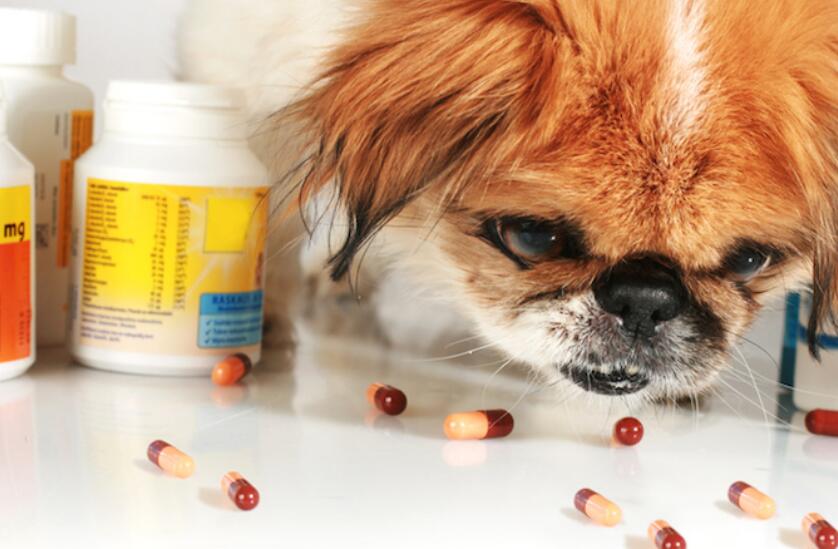 The liver plays a role in many vital body functions. It plays a key role in the metabolism or breakdown of many medications, enabling the body to use therapeutic drugs. The liver detoxifies the blood and removes harmful chemicals and metabolites from the body. In addition to its important filtering system, the liver is a very prolific organ. The liver maintains adequate blood sugar levels by producing glucose from precursors other than carbohydrates. It is responsible for the production of cholesterol, a substance that is a precursor to bile and many important hormones. The liver is also responsible for the production of important proteins, such as blood clotting factors and albumin, which are necessary to maintain the fluid balance of the body’s circulatory system.
The liver plays a role in many vital body functions. It plays a key role in the metabolism or breakdown of many medications, enabling the body to use therapeutic drugs. The liver detoxifies the blood and removes harmful chemicals and metabolites from the body. In addition to its important filtering system, the liver is a very prolific organ. The liver maintains adequate blood sugar levels by producing glucose from precursors other than carbohydrates. It is responsible for the production of cholesterol, a substance that is a precursor to bile and many important hormones. The liver is also responsible for the production of important proteins, such as blood clotting factors and albumin, which are necessary to maintain the fluid balance of the body’s circulatory system.
Here are the five types of liver disease in dogs, along with symptoms and treatment options. Infectious
Infectious
Although the potential cause of canine liver disease remains a mystery, several drugs have been shown to destroy hepatocytes, the cells that make up the liver. Leptospirosis, a bacterium transmitted through contact with urine, poses a risk to both dogs and humans. Adenovirus can cause canine infectious hepatitis. Fortunately, vaccines are available to prevent both diseases. Systemic fungal infections such as histoplasmosis can affect several organs, including the liver. Parasites like trematodes can have a primary effect on the liver and a secondary effect on heartworm infections. Toxicity
Toxicity
Dog parents are often surprised to find out that many naturally occurring substances are dangerous to their pets. If consumed by dogs, the bulbs of ornamental flowers like sago, groundnuts, tulips, daffodils and amaranth can cause multiple organ failure, including liver failure. Consumption of toxic mushrooms can also lead to severe liver damage. Xylitol, one of the most common irritants causing acute liver failure in dogs, is an artificial sweetener. With the increased use of xylitol in baked goods and peanut butter, dogs are at greater risk because this sweetener can cause life-threatening liver cell death and hypoglycemia. With an awareness of the potential dangers of various toxins, pet parents can take steps to avoid exposing their dogs. Drug Induction
Drug Induction
In addition to taking precautions when organisms are involved, parents of dogs need to be aware of various medications that can cause liver damage. Some medications, although prescribed by a veterinarian, require regular blood tests to monitor liver enzyme levels. Medications such as glucocorticoids (prednisone) and anticonvulsants (phenobarbital) can affect the liver, especially if taken for long periods of time. Certain antibiotics, such as tetracycline, are harmful to the liver and should be used with caution in dogs with liver damage. Although dogs are not as sensitive to paracetamol (Tylenol) as cats, they can develop liver failure if accidentally overdosed. Congenital
Congenital
Some dog breeds have a genetic predisposition to develop liver disease. One of these problems is known as Portal Systemic Shunt (PSS). This term refers to abnormal blood vessels that carry blood from the intestines, stomach and pancreas to the periphery, rather than through the liver. Because the liver is bypassed, it is unable to detoxify blood from other vital organs. Ammonia is a toxin that is usually broken down by the liver. Dogs with PSS can develop abnormally high blood ammonia levels, which can lead to neurological signs such as head pressure, gait changes, behavioral changes and seizures. While most liver shunts are congenital, some develop later in life. Any breed can be affected, but some breeds such as the Yorkshire Terrier, Maltese Terrier, Silky Terrier, Miniature Schnauzer, Old English Sheepdog, Irish Wolfhound, Cairn Terrier, and Miniature Poodle are preferred. PSS can be managed medically and surgically.
Copper storage is usually associated with the Bellington Terrier, but it has been found in Western Highland White Terriers, Doberman Pinschers and Labrador Retrievers. Copper is absorbed in the intestine and then transported to the liver for metabolism. Dogs that are genetically unable to properly process copper can produce abnormally high levels of copper in liver tissue, ultimately leading to liver cell damage. Liver biopsy is necessary to diagnose copper storage disorders. Tumors
Tumors
Metastatic disease (cancer that has spread from its origin) is more common than primary liver tumors. Primary liver tumors can originate in the liver itself or in the bile ducts. Causes of liver tumors include parasites and toxin exposure. Metastatic lesions can occur in tissues such as the lungs, pancreas, mammary glands, bones, and spleen. Whether your dog has been diagnosed with primary or metastatic liver tumors, oncology consultation is often recommended. Signs of liver disease in dogs
Signs of liver disease in dogs
Symptoms associated with liver disease can be either specific or non-specific. Other diseases also present with jaundice and fluid accumulation in the abdomen and extremities, but these abnormalities often prompt physicians to investigate liver problems. Nonspecific symptoms include vomiting, increased thirst and urination, loss of appetite, weight loss, personality and behavioral changes, and seizures. When clinical problems and abnormalities are found in routine blood tests, the dog’s veterinarian may recommend additional tests such as serum bile acids, blood clot tests, abdominal ultrasound and liver biopsy. Treatment of liver disease in dogs
Treatment of liver disease in dogs
Treatment recommendations for liver disease depend on the underlying cause of the problem. Chemically driven liver injury intuitively requires cessation of the use of harmful drugs or toxic agents to which the dog has been exposed. Infectious agents require treatment with antibiotics, antifungals or antiparasitics. Certain conditions, such as portosystemic shunts and gallbladder disease often require surgery and medical management. Dogs with copper hoarding need to be treated with medications that remove heavy metals from the blood, such as d-penicillamine. Liver tumors, depending on their size and location, respond to surgery and chemotherapy drugs.
The prognosis of liver disease depends on the dog’s diagnosis, general health status and the stage at which the problem is detected. Routine blood screening and awareness of the signs of liver disease can help with early detection and improve prognosis.

